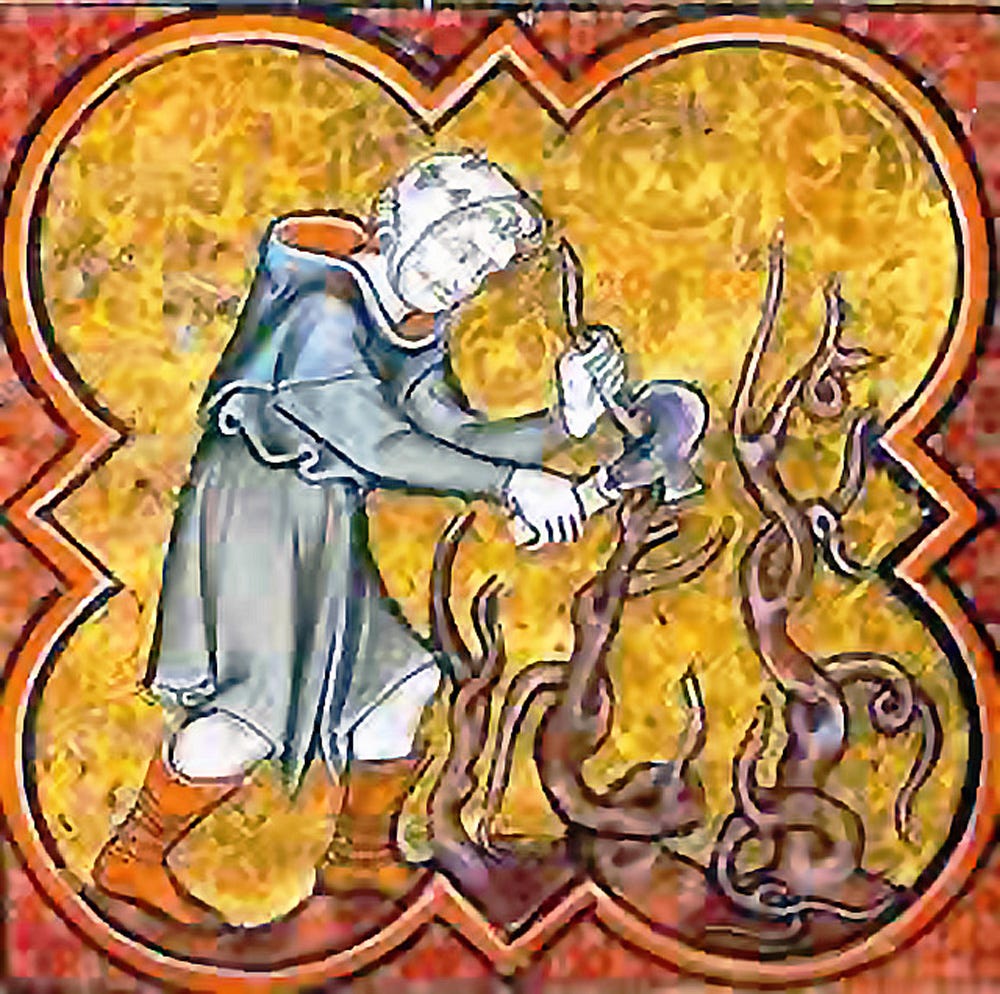Continuing from the post, Exact and Inexact.
See also: Fragments, Chapter 4, pp.68-72 - Reading Club posting 13.
For full citations of items referenced, see Introduction and Bibliography.
It is striking, and a little puzzling perhaps, that, as I understand it, the “divergence between the line of knowledge and the line of being,” and the subsequent lack of means to understanding, is said by Gurdjieff to be caused, among other things, by inexact language. As Ouspensky reports Gurdjieff saying,
“One of the reasons for the divergence between the line of knowledge and the line of being in life, and the lack of understanding which is partly the cause and partly the effect of this divergence, is to be found in the language which people speak. This language is full of wrong concepts, wrong classifications, wrong associations. And the chief thing is that, owing to the essential characteristics of ordinary thinking, that is to say, to its vagueness and inaccuracy, every word can have thousands of different meanings according to the material the speaker has at his disposal and the complex of associations at work in him at the moment. People do not clearly realize to what a degree their language is subjective, that is, what different things each of them says while using the same words. . .”1
As the attempt to put an idea into different words, is often a very helpful exercise, the sense of part of the above could perhaps be put in a different way, as: Unconsciously inexact language is one of the reasons for the divergence between the line of knowledge and the line of being in life.
Understanding is the resultant of both knowledge and being,2 thus, according to the above, inexact language must also be a cause of lack of understanding. And when understanding is lacking, it does itself seem to be an ongoing cause of this inexact language, and thus of the divergence between knowledge and being.
The implication of this seems to be that if we could master a different, and exact, language to think and to communicate with each other, this language itself would prevent the mutual isolation of knowledge and being, and thus give favourable conditions for understanding to develop. Understanding, that most sought after attainment and the “principal demand” of the fourth way3 – or that state, merit, capability, or whatever it is – is then, it seems, according to Gurdjieff, dependent on the language we use. Did we (do we) know that language is so significant for us? It is perhaps another aspect of, “In the beginning was the Word.”4



